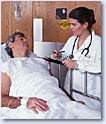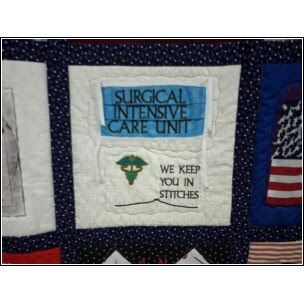Surgical Serenity Solutions: Ideal music delivery
While reading through some new research this morning, on the benefits of music before, during and after surgery, I came across several patients who commented that although some “pretty music” was playing in the operating room during their procedure, they couldn’t hear it very well. I wonder why? Some of the things that could very well be going on in the OR would be:
- Lots of beeping from lots of different medical device machines
- Lots of conversation between surgeon, nurses, assistants
- Sawing, hammering and drilling if it’s a joint replacement
- The music chosen by the surgeon, which is probably loud and upbeat…not what you want if you’re the patient!
Sooooo, why did we decide to find some fabulous cordless headphones? So many great reasons:
- Programmable unit is totally self-contained
- Our proprietary, scientifically tested, highly-praised music comes loaded on the headphones, but
- You can add your own favorite music, if you wish!
- There are no cords dangling around neck to tangle with other equipment
- The headphones block the distracting conversations and unpleasant sound of surgery
If you’ve just found out that you need surgery, you’re probably scared and anxious. If you’ve never had surgery, you don’t know what to expect. If you have had surgery but had a bad experience, or a negative reaction to anesthesia, then you are even more fearful of going through this again. Do yourself a favor! Order the Surgical Serenity Solution now, download the free “How to Talk with Your Doctor about Using Music During Surgery,” and start getting proactive. Thousands of people have had music during their surgical experience and those that used the headphones simply rave about how easy they were and how much they helped!
Please feel free to contact me with any questions!






